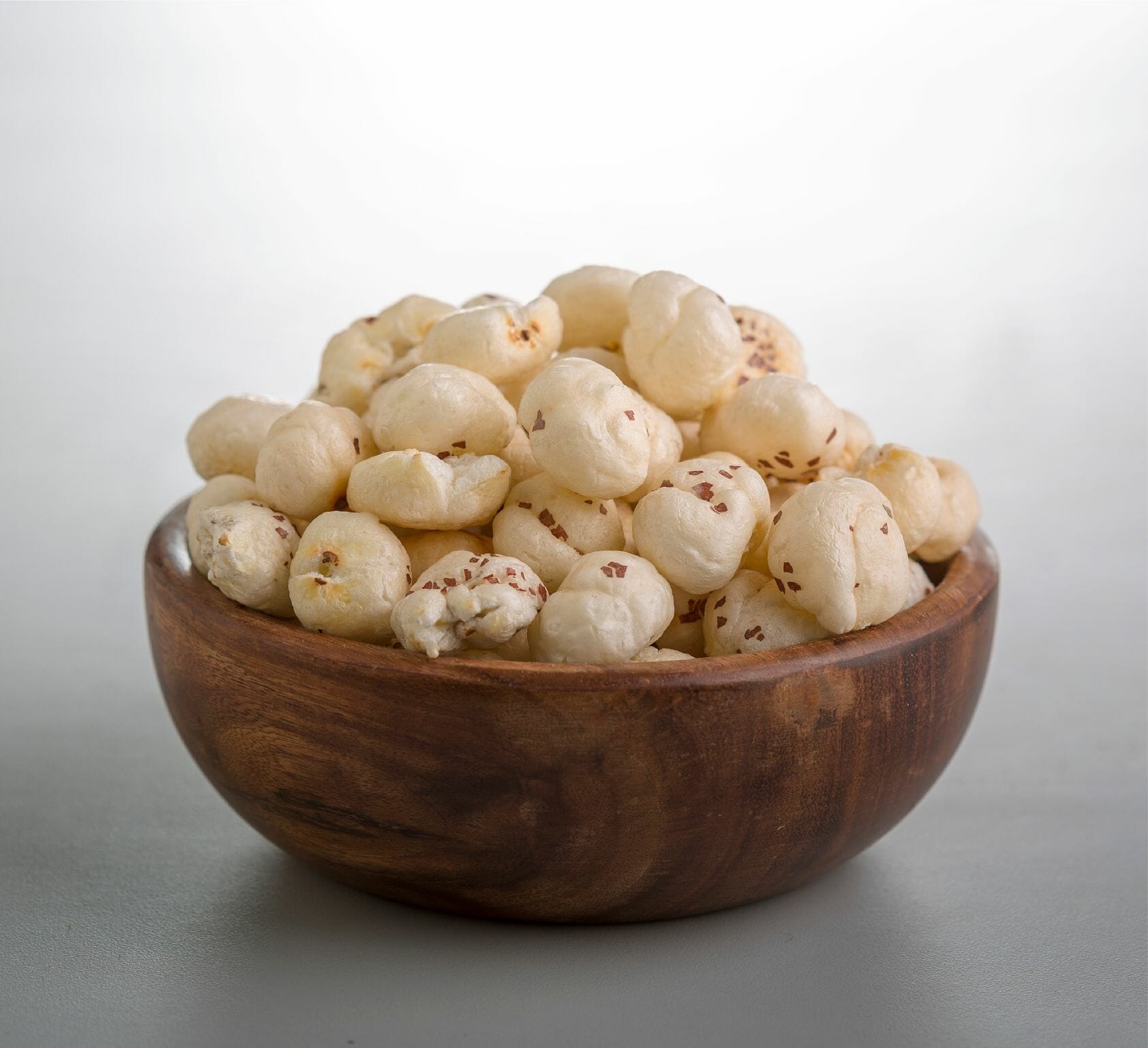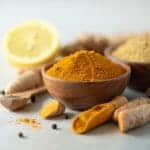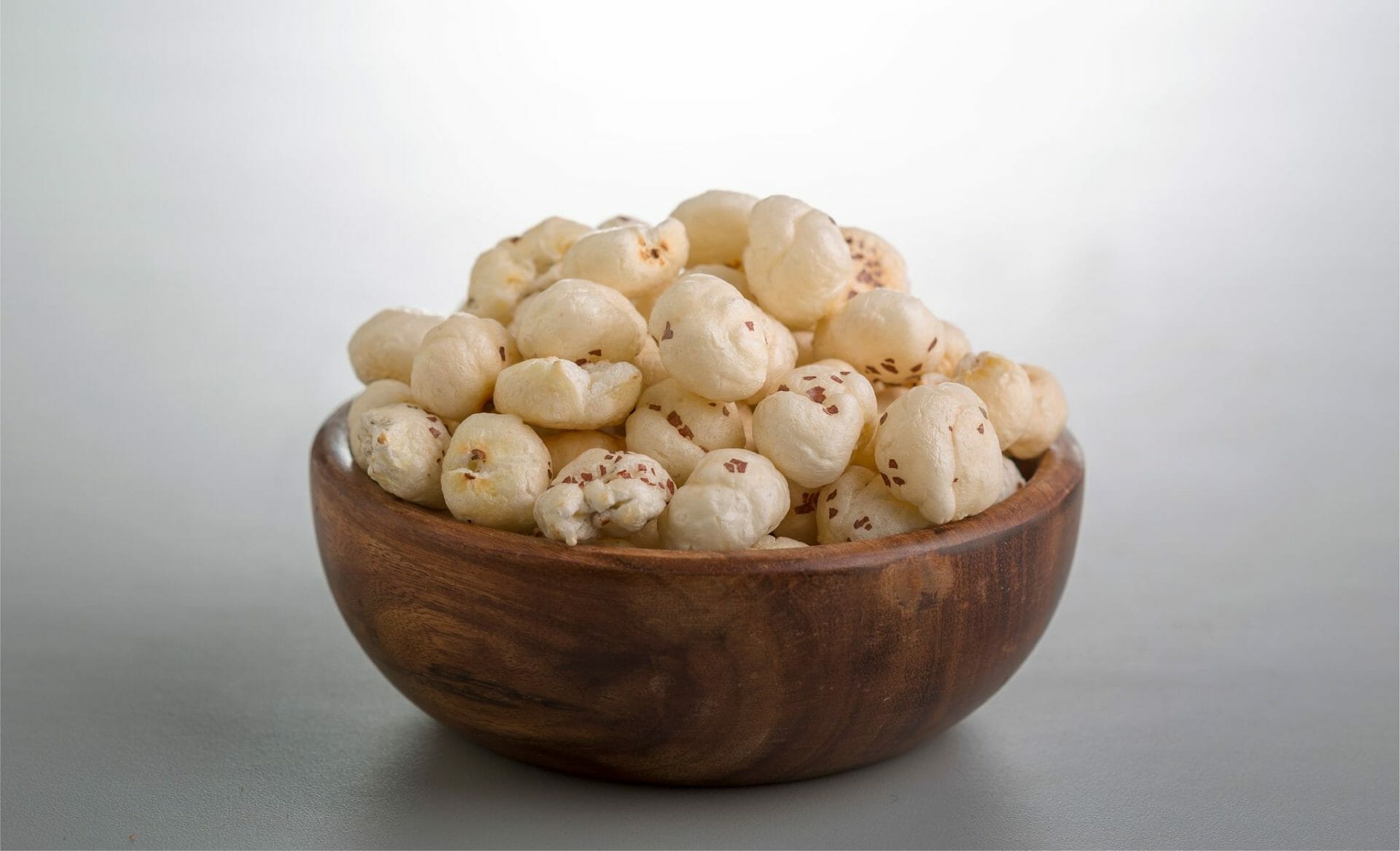
Lotus seeds, known as “makhana,” are revered in Ayurveda, the ancient holistic healing science. These delicate seeds, harvested from the sacred lotus flower, are not merely a culinary delight. They are also a treasure trove of wellness. This article explores the rich heritage of Ayurveda to uncover the benefits that makhana bestows upon our physical and mental well-being. So, let’s look at the hidden marvels of makhana and its potential to elevate your health and vitality. [1]
What are lotus seeds?
Lotus seeds, referred to as “makhana” in Ayurveda, are a crucial component of the lotus plant, revered for their nutritional and bioactive attributes. These seeds possess several phenolic compounds, bringing along various bioactive properties. Beyond their nutritional value, lotus seeds contain industrially significant components, making them valuable resources for developing multiple food products.
The comprehensive profile of lotus seeds positions them as promising candidates for nutraceuticals and bioactive food ingredients. Their integration into Ayurvedic practices underscores their significance as a holistic resource for enhancing health. [1]
Nutritional profile of the lotus seeds
Here’s the nutritional profile of lotus seeds. [2]
| Name | Amount |
| Carbohydrates | 61.3%-70.1% |
| Proteins | 16.2%-28.19% |
| Lipids | 0.22%-3.68% |
| Water | 8.17%- 14% |
| Ash content | 3.07%-4.1% |
Chemical structure of the lotus seeds
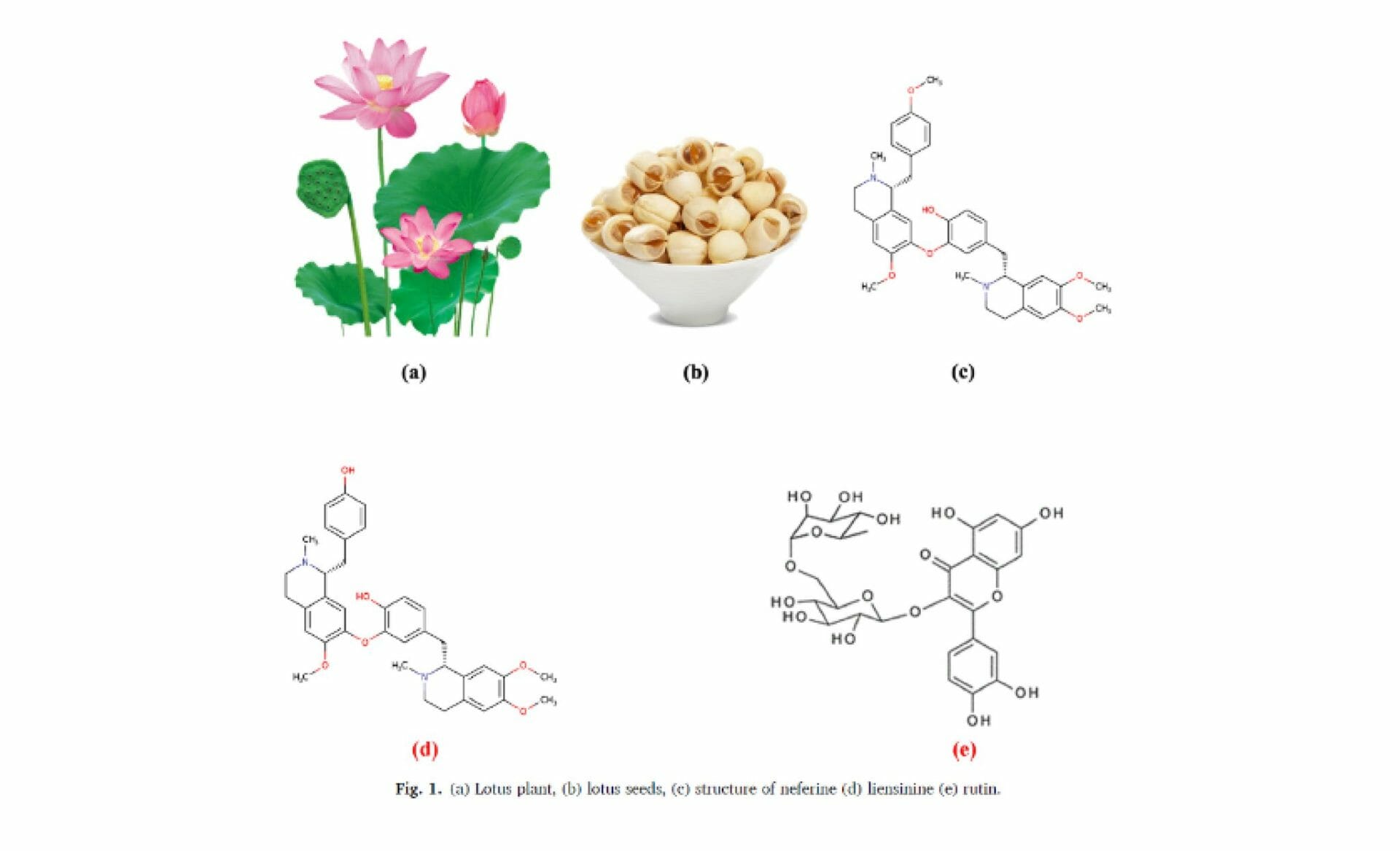
Ten benefits of lotus seeds
Here are ten ways your health can benefit from consuming lotus seeds.
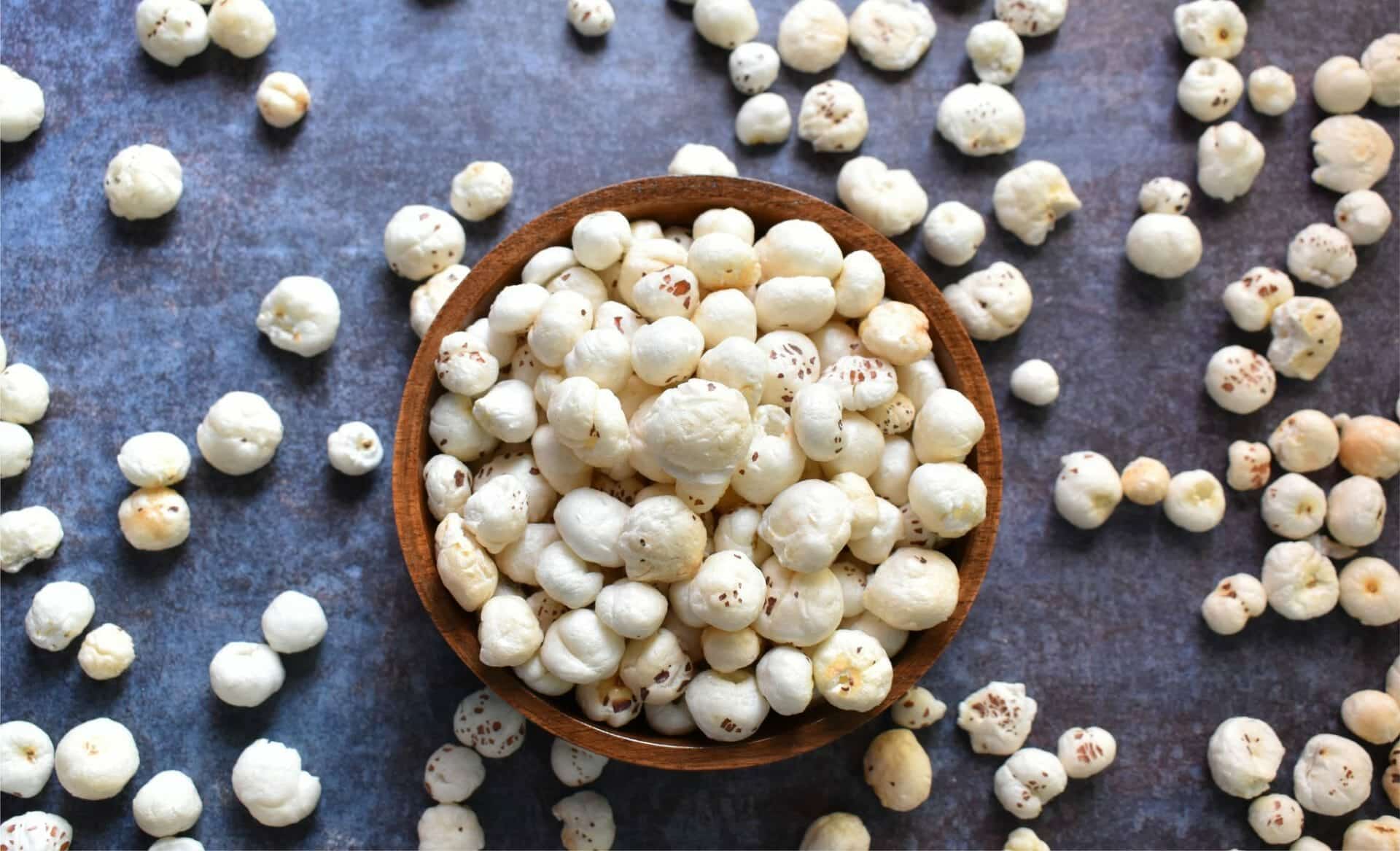
- Anti-cancer properties
Lotus seeds have been recognized for their anti-cancer potential, attributed to their ability to inhibit the proliferation of cancer cells. It offers a protective shield against malignancies. [2]
- Anti-diabetic benefits
Research suggests that lotus seeds possess anti-diabetic properties, assisting in managing blood sugar levels and mitigating the risk of diabetes-related complications. [2]
- Anti-inflammatory effects
Lotus seeds exhibit potent anti-inflammatory characteristics, making them an excellent choice for combating chronic inflammation. It is a common underlying factor in various health conditions. [2]
- Neuroprotective abilities
These seeds have excellent neuroprotective properties, which may help safeguard the nervous system. Furthermore, it can also enhance cognitive function and potentially reduce the risk of neurodegenerative disorders. [2]
Also learn about Brahmi: Medicinal properties, benefits, dosages and more
- Antioxidant potential
Rich in antioxidants, lotus seeds counteract oxidative stress by neutralizing free radicals, promoting cellular health, and potentially mitigating the effects of aging. [2]
- Immunomodulatory activities
Lotus seeds possess immunomodulatory properties, potentially bolstering immune systems’ defenses against infections and diseases. [2]
- Nutraceutical properties
With their abundant bioactive compounds, lotus seeds are valuable nutraceutical ingredients. They offer a natural approach to enhancing overall health.
- Health-promoting supplement
Incorporating lotus seeds into your diet can be a health-promoting supplement, supporting various bodily functions and overall well-being. [2]
- Vitamin C enrichment
These seeds are a notable vitamin C source, contributing to skin health and immune system support. [2]
- Prebiotic effects
Lotus seeds also exhibit prebiotic effects, nourishing beneficial gut bacteria and supporting a healthy gut microbiome. These are vital for digestion and overall well-being. [2]
How to consume lotus seeds
Incorporating lotus seeds, or “makhana,” into your diet can be a delightful and healthful experience. Here’s how you can do it.
- Roasting and seasoning
The most common way to prepare lotus seeds is by roasting them. To do this, heat a dry pan or skillet and add the seeds. Roast them on low to medium heat, stirring until they become crispy and turn a light golden color. The process enhances their flavor and makes them easier to digest.
You can season roasted lotus seeds to suit your taste preferences. Add your favorite spices for flavor. Cumin, turmeric, and chili powder can create a savory or spicy twist. Roasted and seasoned lotus seeds make for an excellent and healthy snack. You can enjoy them as a guilt-free alternative to chips or popcorn.
- Cooking
Lotus seeds can also be part of various culinary creations. They absorb flavors well, making them a versatile ingredient for sweet and savory dishes. They are common in curries and soups.
- Munching raw
While roasting is preferred, you can also eat raw lotus seeds. However, remember that roasting enhances their flavor and makes them more digestible.
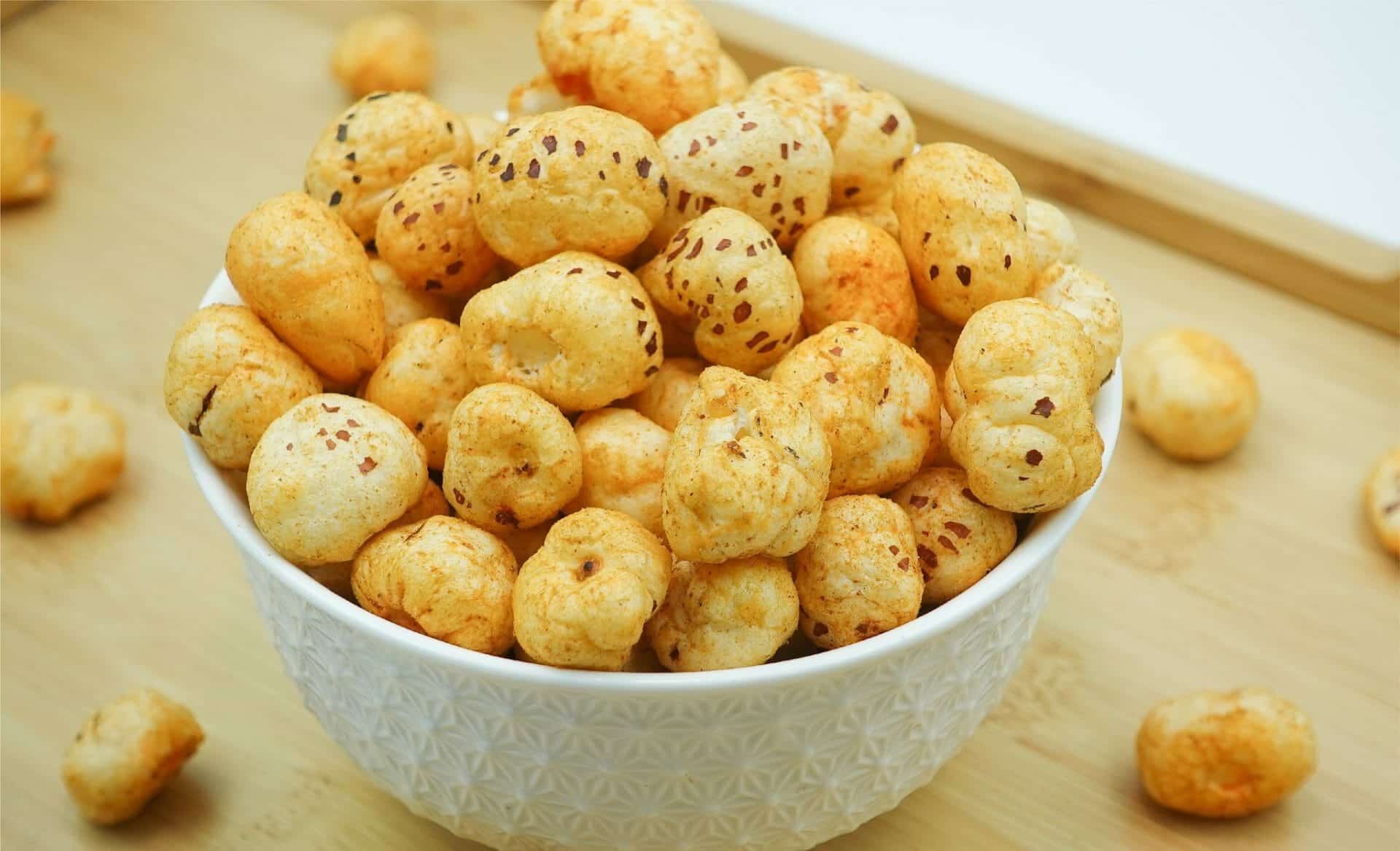
- Desserts
Lotus seeds can be part of sweet treats like puddings and kheer (Indian rice pudding).
- Nutrient-rich milk
Lotus seed milk is another option. Blend soaked lotus seeds with water to create a creamy, nutritious milk alternative for smoothies or beverages.
- Trail mix
Combine roasted lotus seeds with other nuts, seeds, and dried fruits to create a healthy trail mix perfect for on-the-go snacking.
- Traditional ayurvedic recipes
Explore traditional Ayurvedic recipes that incorporate lotus seeds for their therapeutic benefits. Ayurvedic practitioners often recommend makhana for specific health concerns, and these recipes can be nourishing and healing.
FAQs
1. What are the benefits of lotus seeds?
Lotus seeds offer many health advantages. They are abundant in antioxidants, which help reduce the risk of chronic diseases. Lotus seeds also have anti-inflammatory properties, making them beneficial for managing inflammation-related conditions. They can support digestive health due to their prebiotic effects and aid in weight management by being low in calories and high in fiber.
2. What are the benefits of wearing a lotus seed mala (necklace)?
A lotus seed mala, commonly used in meditation and spiritual practices, can carry several benefits. Lotus seeds are known for their association with purity and enlightenment in various cultures. Wearing a lotus seed mala can help calm the mind, enhance focus during meditation, and promote inner peace and spiritual growth.
3. What are the health benefits of lotus seeds (makhana)
Consuming lotus seeds, or makhana, can offer several specific health benefits. They have anti-inflammatory and antioxidant properties. These can help reduce oxidative stress in the body. Makhana helps individuals with diabetes because it can regulate blood sugar levels. Their prebiotic effects support a healthy gut microbiome and aid digestion.
Conclusion
The holistic wisdom of Ayurveda has illuminated the benefits of lotus seeds, known as “makhana.” From their anti-cancer and anti-inflammatory properties to their role in bolstering the immune system and promoting digestive health, these versatile seeds offer diverse advantages. Their status as a nutraceutical and bioactive food ingredient underscores their potential to enhance our well-being.
As we embrace the ancient traditions that have celebrated lotus seeds for centuries, there is a compelling opportunity to integrate these health-promoting gems into our modern lifestyles. Incorporating lotus seeds into your diet will guide you toward improved vitality and holistic well-being, guided by the timeless wisdom of Ayurveda.
Disclaimer
The information provided here does not intend to replace professional advice or treatment.
References




